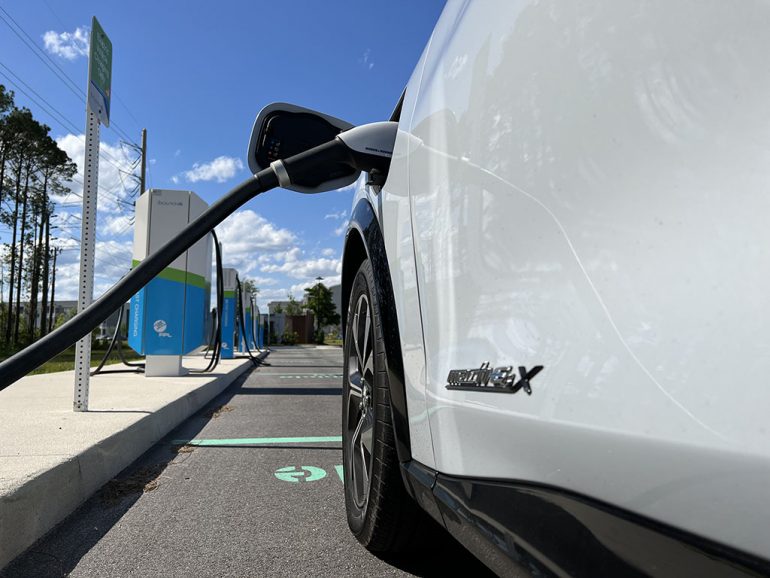
The U.S. government has advanced steps to incentivize the adoption of electric vehicles (EVs) by issuing approximately $135 million in advance point-of-sale consumer tax credit payments since the beginning of 2024. This move, announced by the Treasury, marks a departure from the previous system where buyers could only claim tax credits on their vehicles after filing their tax returns the following year.
Under the new arrangement, which came into effect on January 1st, consumers can now transfer these credits directly to auto dealers at the time of purchase, effectively reducing the upfront cost of purchasing an electric vehicle. This change aims to spur greater interest and investment in the EV market within the United States.
According to the Treasury’s disclosure of previously unreported figures, more than 25,000 time-of-sale reports have been submitted to the Internal Revenue Service (IRS) since the start of the year. Of these, over 78% included requests for advance payments, resulting in around $135 million being disbursed to dealers. This indicates a robust demand for the new upfront discount, which Deputy Treasury Secretary Wally Adeyemo believes will further propel the growth of the EV industry in the country.
The data also reveals that the majority of advance payment requests are for new EVs, with approximately 17,500 requests compared to 2,000 for used vehicles. Over 11,000 U.S. auto dealers have already registered for the program, demonstrating widespread participation in the initiative.
However, there have been recent changes impacting EV eligibility for tax credits, particularly due to new battery sourcing rules. This resulted in several models, including the Nissan Leaf and certain Tesla, Chevrolet, Cadillac, and Ford vehicles, losing their eligibility for tax credits.
In an effort to bolster domestic production and reduce reliance on foreign suppliers, the Treasury issued guidelines aimed at reshaping the U.S. electric vehicle supply chain, particularly reducing dependence on China. These guidelines, along with the August 2022 Inflation Reduction Act, which reformed the EV tax credit, have reshaped the landscape of EV incentives and eligibility criteria.
To qualify for these tax credits at the time of purchase, consumers must confirm that they meet certain income limits, with adjusted gross income thresholds set at $300,000 for married couples and $150,000 for individuals. Moreover, the vehicles must now be assembled in North America to be eligible for any tax credits, reflecting efforts to support local manufacturing.

Mike Floyd is a finance executive by trade and a car enthusiast at heart. As a CFO with a keen eye for detail and strategy, Mike brings his analytical mindset to the automotive world, uncovering fresh insights and unique perspectives that go beyond the surface. His passion for cars—especially his favorite, the Porsche 911, fuels his contributions to Automotive Addicts, where he blends a love for performance and design with his professional precision. Whether he’s breaking down industry trends or spotlighting emerging innovations, Mike helps keep the site both sharp and forward-thinking.